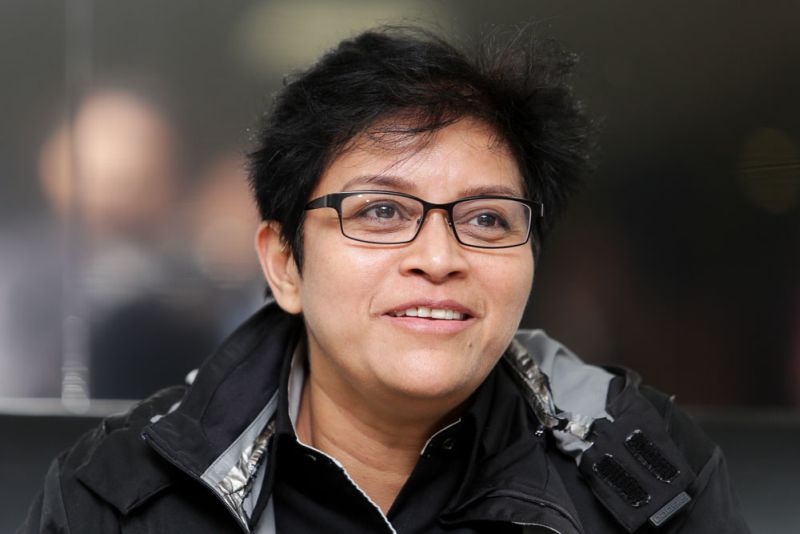KUALA LUMPUR, Aug 29 — The federal government is currently studying if it should review who is entitled to legal aid services instead of just looking at their income levels, de facto law minister Datuk Seri Azalina Othman Said said today amid a relatively smaller budget for such services compared to recent years.
Azalina said the government wants to re-examine the approach taken for legal aid services in the country, including a consideration to streamline and possibly address overlaps in such services by the government, Malaysian Bar and non-governmental organisations.
“But at the end of the day, no matter what we are looking at, the reason we give legal aid in this country is we don’t want people to be victimised especially for people who cannot afford, lawyers are not cheap these days, it’s expensive.
“So the government wants to assist but the government cannot do everything, because everything is costing a lot of money,” she told reporters here, noting the high demand for legal aid with greater awareness of rights as 51,478 people in 2015 alone have sought legal advice from the government’s Legal Aid Department.
Azalina was speaking after she chaired the first meeting of the special working committee of the Prime Minister’s Department’s Legal Aid Department, with the discussion attended by representatives from the Attorney-General’s Chambers, the Bar Council, the Malaysian Shariah Lawyers Association, academics and NGOs.
Among the issues discussed was the means test to determine who is entitled to the government’s legal aid services, Azalina said, noting that there were other factors to consider such as those who already receive other forms of aid from the government.
“We have many categories, for example, the B40 category, we have got the BR1M (Bantuan Rakyat 1Malaysia) category, we have e-Kasih category, but today anybody can go for legal aid when they have cases, so then the question is the means test, how do you evaluate who is entitled?” she asked.
Azalina said she personally preferred the “nationalism” approach of giving priority to Malaysians for legal aid services, but acknowledged that this was a fundamental human right and that such services have to be provided to those aged below 18 even if they are not citizens.
“However, in criminal cases that involve children, legal aid is given to all, not just to Malaysian citizens, because this is a fundamental right,” she said.
She also said the government’s Legal Aid Department currently provides legal aid for civil cases, criminal cases and Shariah cases including family matters, while the Malaysian Bar’s Legal Aid Centre and the National Legal Aid Foundation also provide similar services.
The role that the government plays through the Legal Aid Department has to be re-examined, as it should not shoulder the responsibility of providing legal aid alone, she said.
“So does the Legal Aid Department change its direction where we only focus on criminal cases or do we take out civil and Shariah cases and let the NGOs handle that? We have to evaluate again,” she said of the other issue discussed at today’s meeting.
Other issues discussed as well were the proposal to turn the Legal Aid Department into the Legal Aid Agency with a more independent operation and wider jurisdiction; managing resources to enable easier and affordable access to legal aid for Malaysians; finding an innovative approach to reducing reliance on legal aid, as well as identifying steps for more effective and efficient legal aid services, Azalina’s office said.
According to Legal Aid Department Director-General Datuk Haini Hassan who was present at the same press conference, the current system is that those earning less than RM25,000 annually are eligible for free legal aid services, while those earning between RM25,000 and RM30,000 will have to contribute RM300 for the legal aid services.
A third category that is applicable in rare cases are those who earn beyond RM30,000 annually, with legal aid provided only with the consent of the minister and with a financial contribution and payment depending on the type and merits of the case, Haini said.
According to the Legal Aid Department’s statistics, the combined allocation for its staff wages and management expenditure was over RM39 million annually during the three years of 2012 to 2014, while the budget for last year and this year was close to RM22 million and RM26,669,900 respectively.
The Legal Aid Department currently has 458 staff, including 83 legal officers who are qualified to provide legal advice and appear in the civil and Shariah courts.
Last year, the department handled 19,287 cases, comprising of 9,393 Shariah cases, 5,951 civil cases, 3,945 criminal cases. It registered and is handling 6,802 cases as of this May, namely 3,746 Shariah cases, 1,773 civil cases, 1,283 criminal cases.
The number of those seeking legal advice has been on the rise with a recorded figure of 34,454 in 2012, 36,956 in 2013, 41,481 in 2014, 51,478 in 2015 and 20,458 as of this May.
Azalina said today that cases at the civil and Shariah courts include family disputes, with the latter including divorce petitions and the enforcement of court orders for post-divorce maintenance.
She said that the special working committee would make comparisons with legal aid service models in other countries and carry out a few visits.
She added that the committee is expected to wrap up its talks within the next three to four months, with the decision on a new path for the Legal Aid Department to be subsequently brought to the Cabinet.



















